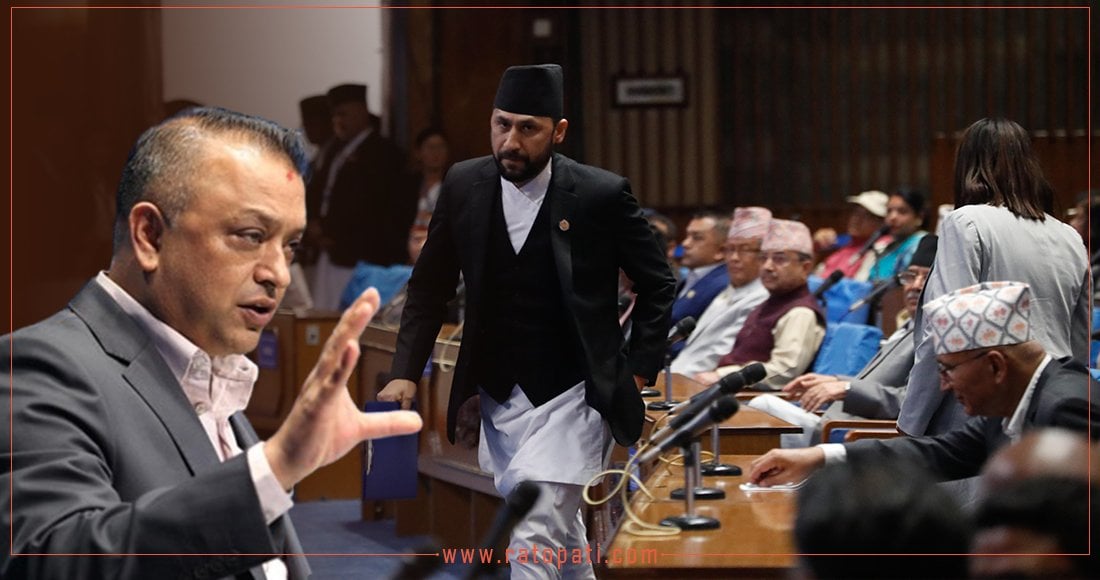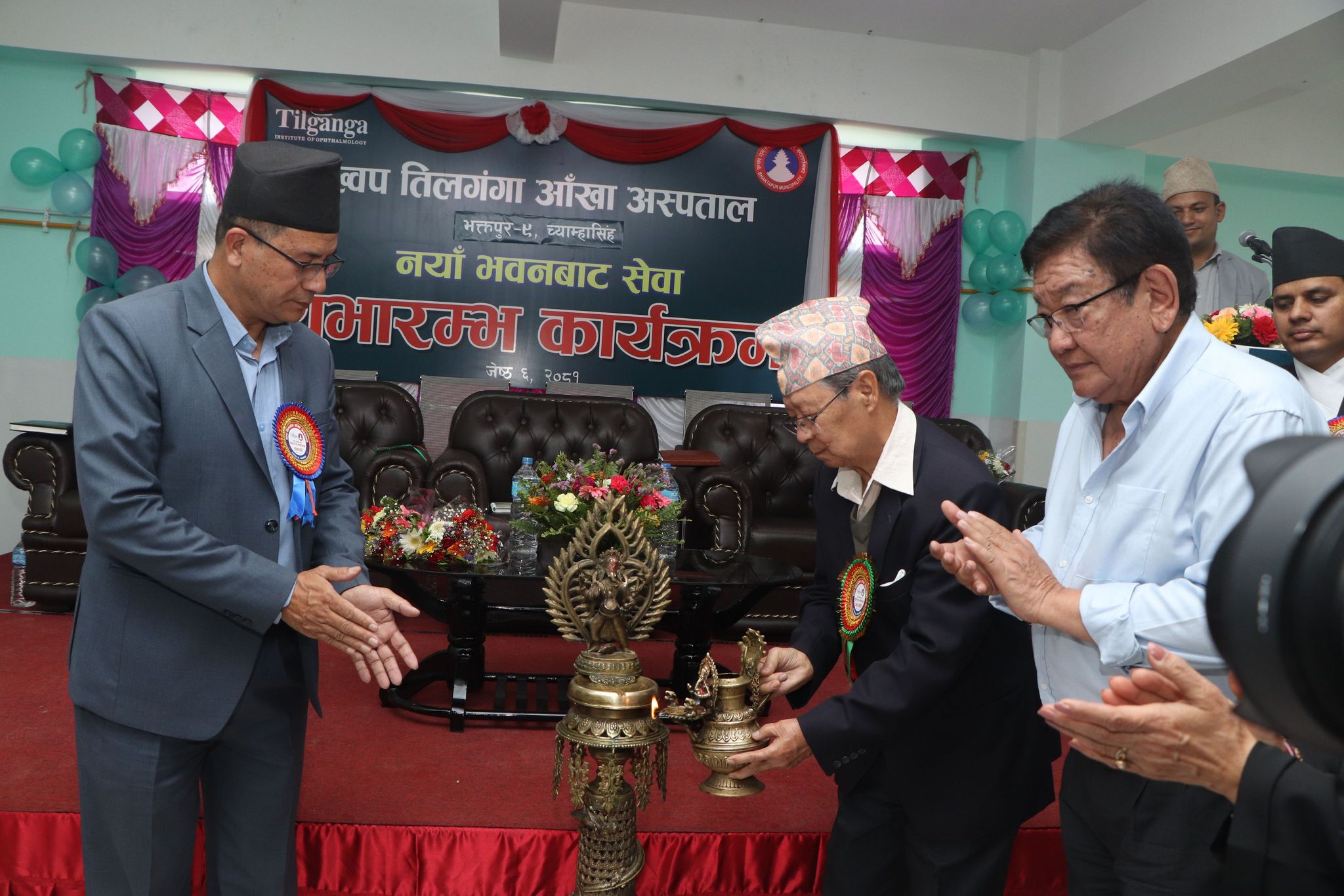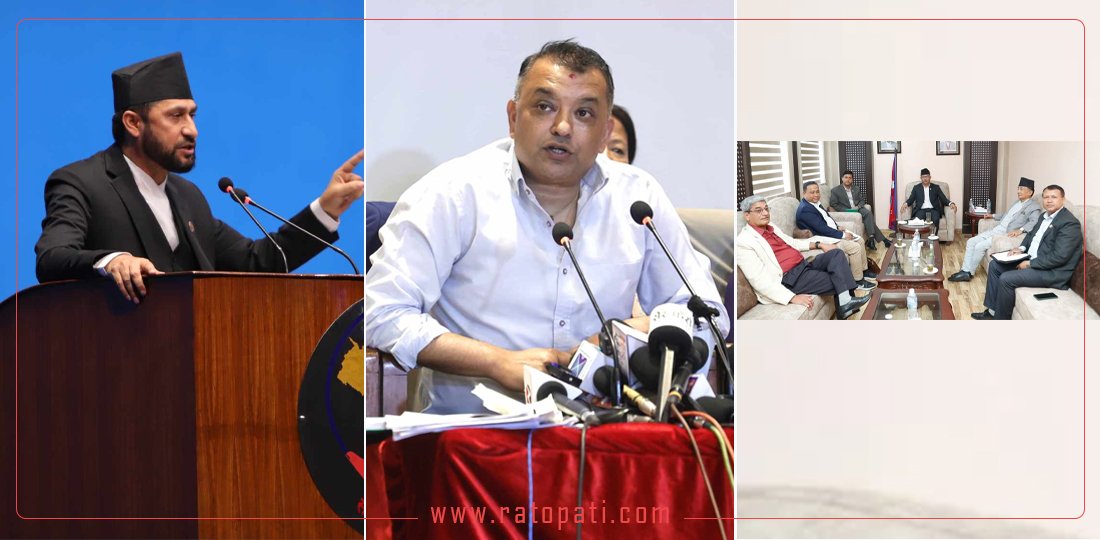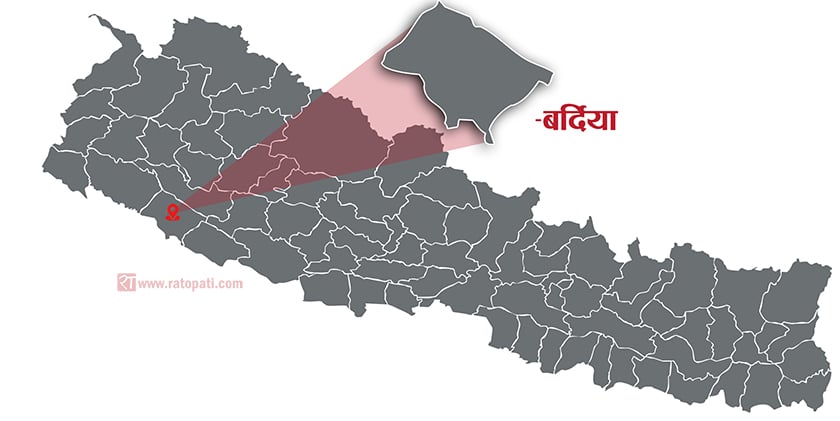New budget: Continuation of the past or a leap forward?

By Shanker Man Singh
Why does the finance minister say ‘I’ instead of ‘we’ in the budget speech? The budget is considered to be the brainchild of the finance minister. First, sometimes (not always) it was ‘us’. Don’t think it’s a plural or collective noun. It was a “royal” us.
Now the finance minister is considered to be a common man. Since that is the case, whether he will say “I” or “we” in the upcoming budget speech remains to be seen. During the finance minister’s budget speech in parliament, the opposition may ask challenging questions to probe the government’s economic decisions.
The questions could be: How do you plan to address the growing national debt and budget deficit; what specific measures have been taken to stimulate economic growth and create more jobs?; can you provide a breakdown of the allocation of funds for key social welfare programs and infrastructure projects?; to prevent tax evasion and ensure fair taxation to all citizens and businesses, what is the strategy?
How will the budget address the rising inflation and the impact on the living standards of the average citizen?
The finance minister usually addresses these questions by providing a detailed explanation of the government’s fiscal policies, budget allocations and economic strategies. They can present statistics, forecasts, and evidence to support their decisions and reassure opponents and the public of their soundness.
In addition, ministers can engage in debate, defend their choices, and outline the potential benefits and outcomes of budget proposals. An estimate of the size of the economy. The government has prepared a budget ceiling of 18 trillion for the next financial year 2081/82.
The government has called the budget session of the parliament for May 10. According to the Constitution, the government should bring the financial budget on May 28.
Apart from a few bright spots, the Nepalese economy is going through a challenging period marked by falling demand and slow growth.
As the private sector does not make new investments, the demand for loans has decreased in banks that have the capacity to give loans of more than 600 billion.
The central bank’s efforts to stimulate the economy through monetary easing have not met with the desired success. Consumers’ purchasing power is declining due to factors such as youth migration abroad and the dampening effect of previous interest rate hikes.
These developments have eroded the consumption base that fuels economic activity. This leaves businesses struggling with unsold inventories and underutilized production capacities.
Even though the central bank lowered the interest rate to historic lows, it was not effective as there was no significant improvement in consumer demand.
Monetary measures alone cannot revive the economy. The economy needs a combination of monetary and non-monetary reforms that promote collaboration between the government, the central bank, financial institutions and the private sector in Nepal.
Non-monetary reforms should address the structural problems that hinder economic growth. Measures to increase employment opportunities may limit the exodus of potential consumers.
At the same time, initiatives to improve productivity and competitiveness can strengthen confidence in private-sector investment. Furthermore, the government should play a catalytic role through targeted fiscal interventions.
Acceleration of capital expenditure and payment of dues to construction companies can provide an immediate boost to economic activity. The budget for the current fiscal year 2080/81 is 17 trillion 51 billion.
The budget for the next financial year will be half a billion more than this. How much was spent on the semi-annual review?
According to the report, in the current financial year, the contribution of the agricultural sector to the GDP will be 3.05 percent, while the growth of the non-agricultural sector will be 3.75 percent. Similarly, the economic growth rate of the current financial year is estimated to be 3.87 percent. Similarly, according to national accounting estimates, 33.7 percent of GDP is estimated to be imported. According to the office, 34.68 percent of GDP was imported in the fiscal year 2079/80 and 42.27 percent in the fiscal year 2078/079.
Recently, Finance Minister Barshaaman Pun has said that he will work in such a way that there will be no controversy when changing the tax rates in the budget for the next fiscal year 2081/82. Time will tell what will happen, let us be hopeful. He has promised that he will not act in the way of pressure or self-interest in changing the tax rates. Whatever is done to reduce, increase, extend or discount the tax rates, the Minister of Finance or the Ministry of Finance has been in controversy in the past, Minister Pun said, “It is our policy that tax rates should not be changed based on the minister’s personal desire or proximity to encourage someone and weaken someone. It is a commitment”.
The Minister explained that the amount of the tax will be revised by showing the reason why it was reduced or increased now. The budget’s message for the country’s economy is that it is still facing the challenge of being a fiscally responsible government.
A study has pointed out the possibility of the export of information technology products worth 5 billion rupees in the next 5 years, so it also seems to express the potential of the sector.
Mentioning that Nepal’s average economic growth in the last three decades is only 4.23 percent, one has to find the reason for it together.
Since Nepal is located between India and China, which have a large population and a large economy, it seems that it should be able to reap the benefits of the development done by both neighbors.
Nepal Rastra Bank admits that although the external sector has improved, the internal economy is still under pressure. It has been made public that domestic economic activity can be expected to expand in the coming days as interest rates are decreasing and liquidity is improving. Basically, Nepal’s budget process has become very unrealistic in recent years. On cursory review, the budget targets are set at unnecessarily high levels, especially in development revenue and foreign aid.
Since there is little chance of cutting regular expenses, a policy “departure” is necessary if the financial adjustment has already been affected by cutting development expenses.
In the structure of foreign aid in Nepal, there is an increased tendency to give loans rather than grants. This has added to the growing burden of debt service charges and interest payments.
The burden of debt servicing in Nepal is increasing at a rapid pace, though not acute and alarming. If the government does not adopt certain measures to mitigate the situation, it will not only cause instability in the economy but also slow down the pace of development and bring economic consequences.
There is a lack of monitoring mechanisms in budget implementation. Hence, there is widespread leakage of resources and a slow pace of project implementation. There is also a lack of coordination between government agencies. The lack of multi-year planning further adds to the problem. There is an extreme lack of multi-year planning in Nepal. Therefore, there is a lack of coordination between the required budget and budget allocation for many development projects.
In the absence of such a plan, many development programs are at a standstill and the state of implementation is pathetic.
Government and civil servants also lack commitment. There is no effective reward and punishment system. Lack of good governance results in poor financial management of the government.
Since about 65 percent of people are directly or indirectly dependent on agriculture and the contribution of the agriculture sector to the total domestic product is more than one-third, it is not possible to boost the economy without the development of the agriculture sector from the perspective of Nepal.
Nepal is the country with potential from the point of view of tourism development. Education and health should be linked with tourism. If the tourism sector can be developed, the country can leap in economic development.
New programs should be introduced to attract not only foreign tourists but also religious and domestic tourists to specific places. Priority should be given especially to infrastructure.
In the past, it was announced that 2023 to 2032 will be celebrated as the tourist decade.
The investment conferences held here significantly communicated the investment potential of Nepal at the international level. There is a need to attract foreign investors in industries, commercial sectors, physical infrastructure, energy and other service sectors.
Special priority should be given to the creation of an investment-friendly environment in order to attract foreign investment into the country. For the implementation of this, a clear program should be introduced in the upcoming budget.
Nepal has got time to upgrade from a least developed country to a developing country. It was also mentioned in the guidance issued by the National Planning Commission that the budget and programs should give priority to that context.
Due to the lack of satisfactory implementation of policies and programs of policy reforms at different times, the economy has not been able to gain the expected momentum.
Against this backdrop, the budget for the financial year 2081/82 needs to cover the following issues from a policy perspective in order to achieve high and sustainable economic growth in the upcoming budget. Budget priority It has become necessary and inevitable to identify and invest in projects with high global relations.
It has physical infrastructure plans and projects ahead of it. It is necessary to put the big and small hydropower projects in second place. Another area of comparative advantage in Nepal is tourism. Extensive investment in infrastructure is required for its promotion.
The recently concluded Nepal Investment Summit (NIS) 2024 outcomes and recommendations will provide some impetus in the formulation of the Budget, among others.
The views expressed in this article are the author’s own and do not necessarily reflect People’s Review’s editorial stance.
Source : https://www.peoplesreview.com.np/2024/05/08/new-budget-continuation-of-the-past-or-a-leap-forward/






